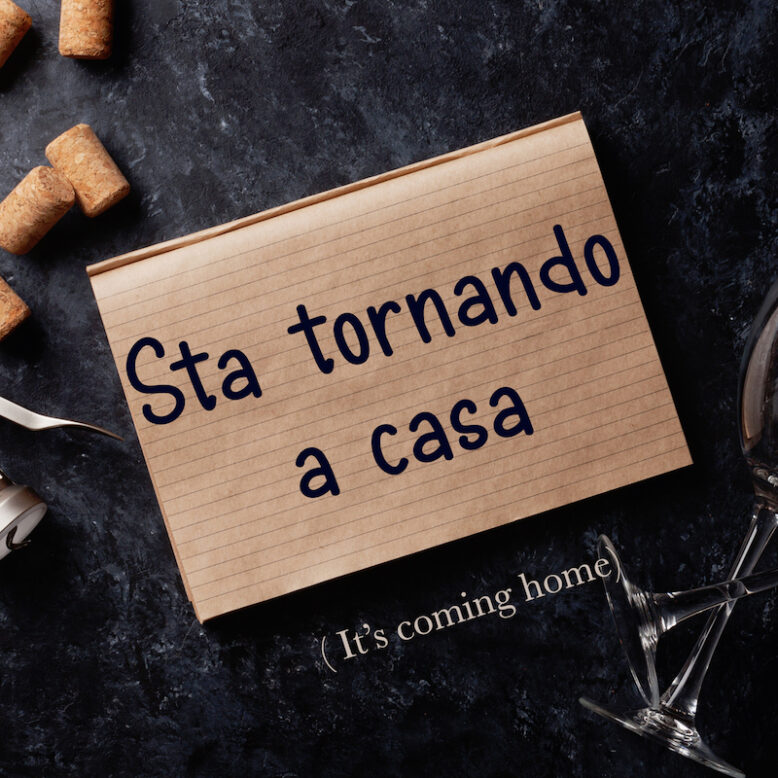Since the beginning of the UEFA Euro 2020 tournament, we’ve had a few eager football fans ask us how to translate the slogan “It’s coming home!” into Italian.
For those of you who don’t follow football, “It’s coming home” has been the chant of England supporters since it was first sung by the Lightning Seeds, and comedians Frank Skinner and David Baddiel in their Three Lions anthem for Euro ‘96. The popularity of the chant surged once again this year when Atomic Kitten released a song for the 2020 tournament called Southgate, You’re the One.

In the original song, the mantra, whose full form is “Football is coming home!“, was a nod to the fact that the Euro tournament was being hosted by the country that many believe invented football. Today it refers more generally to the idea of England bringing a trophy back to England – in this case, the Euro trophy.
Unfortunately “It’s coming home” is such a historically and culturally bound expression that it is impossible to translate into Italian without losing the subtle nuances of the English phrase. However, what we can offer is a literal word-for-word translation:
Sta tornando a casa!
(Il calcio sta tornando a casa!)
It’s coming home!
(Football is coming home!)
Sta tornando is how you would say “is coming back” in Italian. It is made up of the verb stare (to be / to stay) in the third-person present tense plus the gerund form of the verb tornare (to return / to come back). Note that it isn’t necessary to use a pronoun to express the concept of ‘it‘ in Italian. This is because the verb form and context clarify the meaning.
A casa can translate as either home or at home depending on the context. For example, tornare a casa means to come (back) home whereas essere a casa means to be at home.
On a rather funny note, Italian supporters on social media have put a humorous twist on the slogan, by crossing out “home” and replacing it with “to Rome”! 😃
IT’S COMING TO ROME. 😤🇮🇹
— AZR (@AzrOrganization) July 6, 2021
ITALY ARE THROUGH TO THE EURO 2020 FINAL. 😍🤞🏻 pic.twitter.com/vudQIGEbMT
Do you think the trophy is coming home? Or will it find its home in Rome? Let us know in the comments below!

Heather Broster is a graduate with honours in linguistics from the University of Western Ontario. She is an aspiring polyglot, proficient in English and Italian, as well as Japanese, Welsh, and French to varying degrees of fluency. Originally from Toronto, Heather has resided in various countries, notably Italy for a period of six years. Her primary focus lies in the fields of language acquisition, education, and bilingual instruction.


